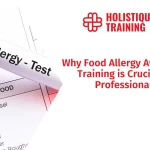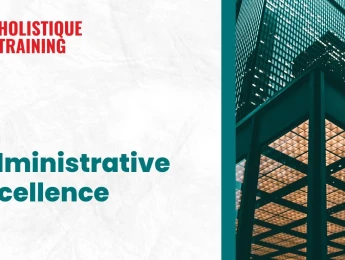Food safety management systems (FSMS) are sets of procedures and practices that actively control hazards and risks in food processing and ensure regulatory compliance. The ISO 22000 Food Safety Management Certification (FSMS) provides the framework for auditing and certifying your FSMS.
This course will provide insight into implementing an effective and robust food safety policy in food production, supply, and consumption chains. You will learn to minimise risk, broaden your understanding of food safety principles and systems, and ensure that your FSMS meets ISO 22000 requirements.
Upon completion of this course, participants will be able to:
- Develop an FSMS to control and improve food safety.
- Use risk-based thinking to design your food safety policy.
- Successfully fulfil the documentation requirements for ISO 22000 certification.
- Leverage operational planning and control to support food safety.
- Evaluate and consistently refine your FSMS.
This course is intended for
- Quality Control professionals
- Public Hygiene Inspectors
- Food Safety Consultants
- Food Scientists
- Anyone looking to learn about food safety systems
The course uses a blended approach of theoretical instruction, practical exercises, group discussions, and case studies. Participants will engage in lectures, hands-on activities, and problem-solving workshops to understand and implement ISO 22000 standards. Interactive sessions, role-playing, and software tools are incorporated to enhance learning. Continuous feedback and post-training support ensure participants can effectively apply their knowledge in real-world settings. This methodology provides a comprehensive and practical understanding of food safety management systems.
Day 5 of each course is reserved for a Q&A session, which may occur off-site. For 10-day courses, this also applies to day 10
Section 1: Introduction to Food Safety Management Systems (FSMS)
- Examine the ISO 22000:2018 standard of developing, documenting, implementing, and maintaining a solid food safety management system.
- Compare the differences between the ISO 22000 standard developed in 2005 and the updated 2018 standard.
- Outline the history of food safety management.
- Compare the ISO 22000:2018 standard to HACCP (Hazard Analysis and Critical Control Points).
- Discuss how HACCP is used in the food industry.
- Review international regulations and guidelines for food safety.
- Define key food safety terms.
- Examine organisational requirements and expectations for implementing an FSMS.
Section 2: Risk-Based Thinking For Food Safety Policy
- Outline leadership and management commitment to the policy.
- Confirm and communicate the food safety policy.
- Assign roles and responsibilities.
- Use risk-based thinking to plan.
- Determine the objectives of your FSMS.
- Plan how to manage changes in your FSMS.
Section 3: Documentation Requisites And Support Requirements For Iso 22000
- Identify your resource requirements: the people, infrastructure, and work environment.
- Establish the required level of personnel competence and knowledge.
- Describe how to communicate effectively, both internally and externally.
- Outline the documentation requirements and process for ISO 22000.
- Examine sample ISO 22000 documents.
- Design a document control process that provides traceability and conformity.
Section 4: Food Safety Through Operational Planning And Control
- Describe Prerequisite Programmes (PRPs) for hygiene.
- Outline traceability and its importance in food safety.
- Discuss the responsibility of emergency preparedness and response in the food chain.
- Review control measures for hazards and develop a plan to monitor and analyse risks.
- Examine how verification planning supports your food safety plan.
- Define standards and a process to control product and process nonconformity.
- Describe the types of corrective actions and how product release, withdrawal, or recall impacts product control.
Section 5: Evaluate Your FSMS
- Examine the critical steps in evaluating performance: monitor, measure, analyse, and evaluate.
- Describe internal audits using ISO 22000 benchmarks.
- Elaborate on the value of consistently reviewing your FMSM for ongoing fitness for purpose.
- Explain how nonconformities are managed and the essential role of corrective action(s).
- Discuss the reasoning behind the continual updates and improvements of your FSMS.
Upon successful completion of this training course, delegates will be awarded a Holistique Training Certificate of Completion. For those who attend and complete the online training course, a Holistique Training e-Certificate will be provided.
Holistique Training Certificates are accredited by the British Assessment Council (BAC) and The CPD Certification Service (CPD), and are certified under ISO 9001, ISO 21001, and ISO 29993 standards.
CPD credits for this course are granted by our Certificates and will be reflected on the Holistique Training Certificate of Completion. In accordance with the standards of The CPD Certification Service, one CPD credit is awarded per hour of course attendance. A maximum of 50 CPD credits can be claimed for any single course we currently offer.
Tags
food quality, food, Policy, management, Food Safety, ISO, FSMS, ISO 22000, Food Chain, Food Supply,- Course Code PO2-111
- Course Format Classroom, Online,
- Duration 5 days














